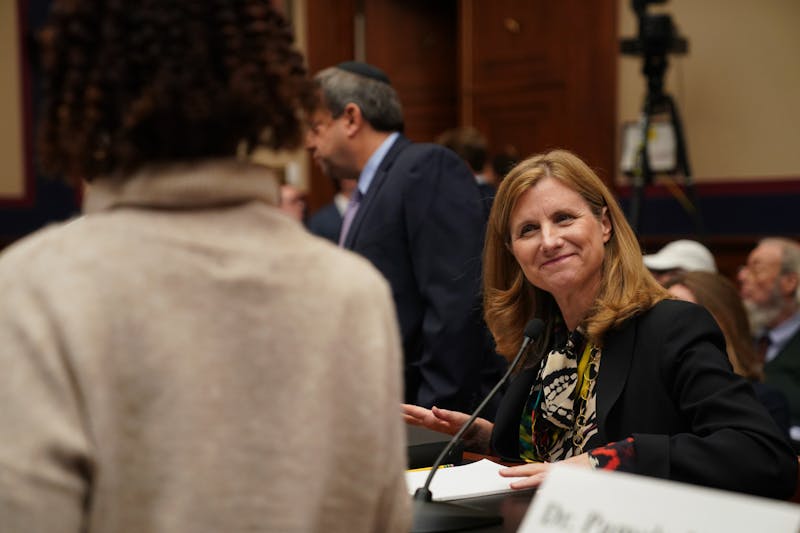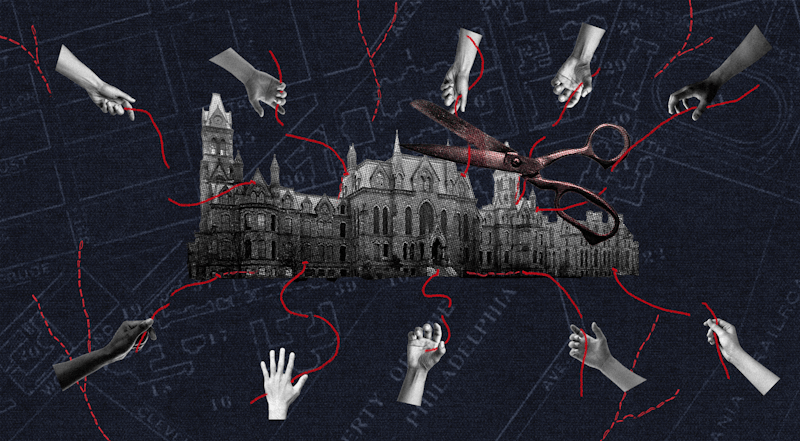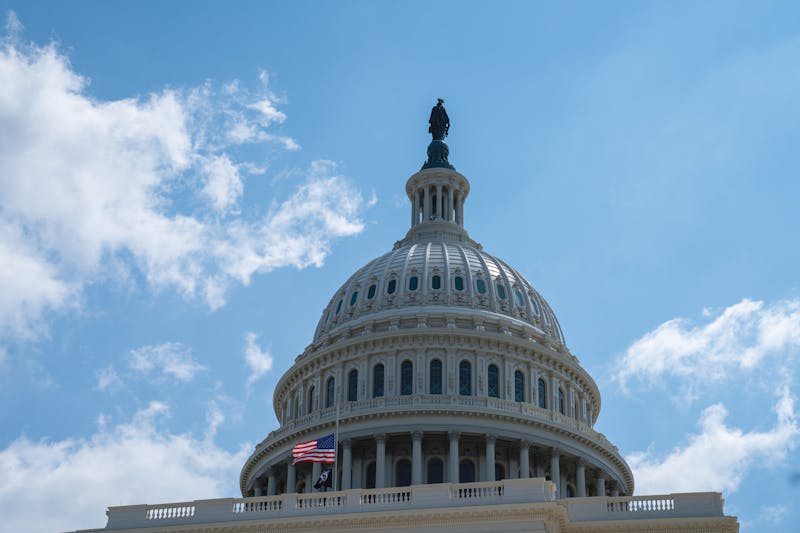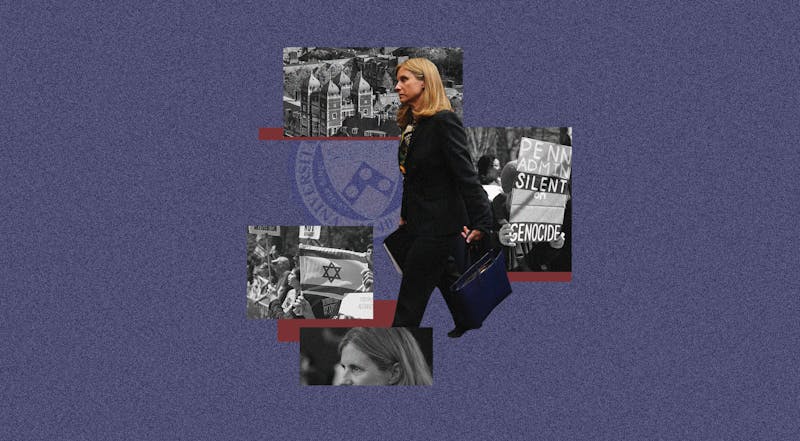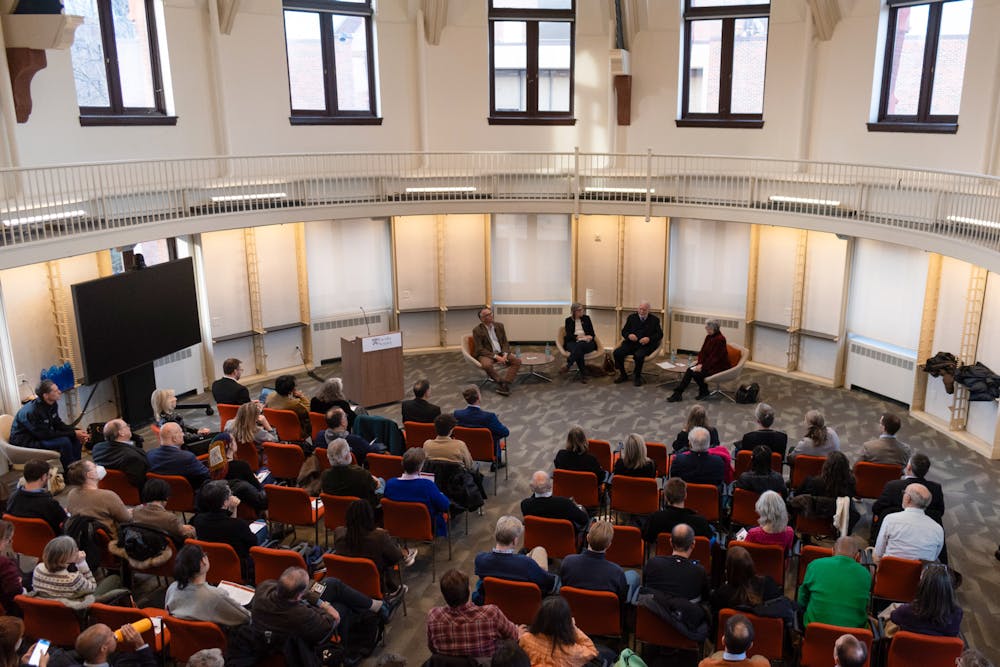
Penn's Faculty Senate held its first panel discussing the state of political pressure on higher education.
Credit: Devansh RaniwalaPenn’s Faculty Senate hosted a panel of academic leaders to discuss the political challenges facing higher education on Thursday.
The Jan. 30 event — titled “Higher Education and the State: How Politics are Reshaping America’s Great Universities" — was the first of the Faculty Senate’s three-part “The Future of American Universities” colloquium series. A panel of higher education leaders discussed a number of issues facing American higher education, including threats to diversity, equity, and inclusion and pressures from donors.
The discussion took place at the Kleinman Center Energy Forum and was moderated by Annenberg Public Policy Director and Elizabeth Ware Packard Professor of Communication Kathleen Hall Jamieson.
Following introductory remarks from Interim Penn President Larry Jameson, Jamieson asked Former President of the American Association of University Professors Irene Mulvey, President of Wesleyan University Michael Roth, and President Emeritus of New York University John Sexton to share their most important thoughts on higher education.
Sexton characterized the current environment surrounding higher education as “a time of peril,” which he attributed to Americans' increased lack of faith in institutions including academia.
“This pervasive lack of trust in institutions has now affected, in my view, the intramural dialogue that goes on in our campuses,” Sexton said. “There’s always been challenges to universities, but these times are far more existential.”
Amid attacks on DEI initiatives from President and 1968 Wharton graduate Donald Trump's second administration, Mulvey emphasized the importance of defending higher education against “educational gag orders."
Roth similarly defended DEI initiatives, and said that academic leaders are “on the front lines of a war in civil society.” He also criticized how leaders in a variety of industries including academia have been willing to “keep [their] head down.”
“This is the perfect prescription for authoritarianism to win,” Roth said.
The panel also addressed the issue of balancing free speech and trustee demands, particularly in the context of recent student protests over the ongoing Israel-Hamas war. Roth emphasized the importance of university leaders standing up for the rights of students and faculty to exercise their freedom of speech.
“We, all of us in education, have to defend steadfastly the right to criticize, including criticizing us , including criticizing the administration in the United States,” Roth said. “It’s a fundamental First Amendment right.”
Sexton described his experience rebuking a donor who threatened to withdraw his $500 million donation if Former President Bill Clinton was invited to NYU's campus. Sexton characterized the demand as a "Faustian bargain,” a term used to describe a deal where one party sacrifices something of significant moral value in exchange for power, material gain, or short-term success.
The Faculty Senate will hold two more panels this semester. The second event will take place at the Agora in the Annenberg Public Policy Center on Feb. 26. The third installment will be held at the Kleinman Center Energy Forum in Fisher Fine Arts Library on April 9.
The Daily Pennsylvanian is an independent, student-run newspaper. Please consider making a donation to support the coverage that shapes the University. Your generosity ensures a future of strong journalism at Penn.
Donate







